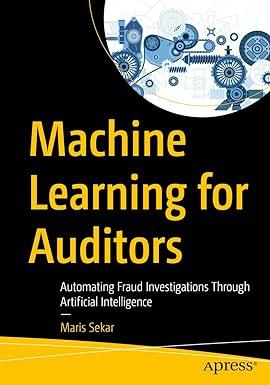Answered step by step
Verified Expert Solution
Question
1 Approved Answer
im looking for wn answer with some details. not the already existing ones 1-31 Global company, ethical challenges. Bredahl Logistics, a U.S. shipping company, has
im looking for wn answer with some details. not the already existing ones 







1-31 Global company, ethical challenges. Bredahl Logistics, a U.S. shipping company, has just begun distributing goods across the Atlantic to Norway. The company began operations in 2010, transporting goods to South America. The company's earnings are currently trailing behind its competitors and Bredahi's investors are becoming anxious. Some of the company's largest investors are even talking of selling their interest in the shipping newcomer. Bredahl's CEO, Marcus Hamsen, calls an emergency meeting with his executive team. Hamsen needs a plan before his upcoming conference call with uneasy investors. Brehdal's executive staff make the following suggestions for salvaging the company's short-term operating results: a. Stop all transatlantic shipping efforts. The start-up costs for the new operations are hurting current profit margins. b. Make deep cuts in pricing through the end of the year to generate additional revenue. c. Pressure current customers to take early delivery of goods before the end of the year so that more revenue can be reported in this year's financial statements. d. Sell-off distribution equipment prior to year-end. The sale would result in one-time gains that could offset the company's lagging profits. The owned equipment could be replaced with leased equipment at a lower cost in the current year. e. Record executive year-end bonus compensation for the current year in the next year when it is paid after the December fiscal year-end. f. Recognize sales revenues on orders received, but not shipped as of the end of the year. g. Establish corporate headquarters in Ireland before the end of the year, lowering the company's corporate tax rate from 28% to 12.5%. 1. As the management accountant for Brehdahl, evaluate each of the preceding items (ag) in the context of the "Standards of Ethical Behavior for Practitioners of Management Accounting and Financial Management," Exhibit 1-7 on page 38. Which of the items are in violation of these ethics standards and which are acceptable? 2. What should the management accountant do with respect to those items that are in violation of the ethical standards for management accountants? Instructions: Read the "Statement of ethical professional practice" available below. There is also a presentation with audio explanations available on SU Course++. Based on the readings, write a short answer to question 1-31 below. Please support your answers with the standards: Competence, Confidentiality, Integrity and Credibility. - Maintain professional expertise - Perform duties in accordance with the laws and regulations - Provide information that is accurate, clear and timely - Keep information confidential - Inform relevant parties regarding appropriate use and monitor subordinates - Refrain from using confidential information for illegal advantage - Mitigate conflicts of interests - Refrain from engaging in any activity that prevent duties to be professionally conducted - Abstain any activity that miaht discredit the - Communicate information fairly and objectively - Disclose all information that is reasonable to expect - Disclose deficiencies, delays etc umduct as mol cal.iy at as acc ethries lethi- Statement of ethical professional practice - IMA IMA members have a responsibility to comply with and uphold the standards of Competence, Confidentiality, Integrity, and Credibility. Failure to comply may result in disciplinary action. I. COMPETENCE 1. Maintain an appropriate level of professional leadership and expertise by enhancing knowledge and skills. 2. Perform professional duties in accordance with relevant laws, regulations, and technical standards. 3. Provide decision support information and recommendations that are accurate, clear, concise, and timely. Recognize and help manage risk. II. CONFIDENTIALITY 1. Keep information confidential except when disclosure is authorized or legally required. 2. Inform all relevant parties regarding appropriate use of confidential information. Monitor to ensure compliance. 3. Refrain from using confidential information for unethical or illegal advantage. III. INTEGRITY 1. Mitigate actual conflicts of interest. Regularly communicate with business associates to avoid apparent conflicts of interest. Advise all parties of any potential conflicts of interest. 2. Refrain from engaging in any conduct that would prejudice carrying out duties ethically. 3. Abstain from engaging in or supporting any activity that might discredit the profession. 4. Contribute to a positive ethical culture and place integrity of the profession above personal interests. IV. CREDIBILITY 1. Communicate information fairly and objectively. 2. Provide all relevant information that could reasonably be expected to influence an intended user's understanding of the reports, analyses, or recommendations. 3. Report any delays or deficiencies in information, timeliness, processing, or internal controls in conformance with organization policy and/or applicable law. 4. Communicate professional limitations or other constraints that would preclude responsible judgment or successful performance of an activity 







Step by Step Solution
There are 3 Steps involved in it
Step: 1

Get Instant Access to Expert-Tailored Solutions
See step-by-step solutions with expert insights and AI powered tools for academic success
Step: 2

Step: 3

Ace Your Homework with AI
Get the answers you need in no time with our AI-driven, step-by-step assistance
Get Started


